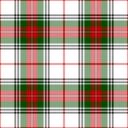Yahoo Answers is shutting down on May 4th, 2021 (Eastern Time) and the Yahoo Answers website is now in read-only mode. There will be no changes to other Yahoo properties or services, or your Yahoo account. You can find more information about the Yahoo Answers shutdown and how to download your data on this help page.
Trending News
What are the mistakes most often made by genealogical researchers?
This spring while I was completing an internship in library science, a very knowledgeable reference librarian for a public library genealogical research center confided in me that the most common mistakes made by family historians were 1) not documenting research, 2) assuming that Internet sources can yield all the answers, and 3) failing to talk to family members. What are your thoughts on this, and what are the most often looked genealogical sources?
6 Answers
- shortgillyLv 79 years agoFavorite Answer
I'd say there's several and there's a difference between mistakes made by new researchers and experienced ones.
1. Attempting public record searches on people that are inappropriate.
2. Sharing private information about living people.
3. Believing family legends and going down the wrong road to chase them down, and on the other hand not talking to family at all. There's a balance required.
4. Confusing 2 people of the same name.
5. Not understanding the record or source they are looking at, and consequently misinterpreting what it really says or means or putting too much stock in an inappropriate resource.
6. A researcher may have all their documentation in order, but make a mistake telling the story and end up propagating family legends.
7. Having too much faith in their own research, or the research someone else has done. Just because Aunt Pearl did a family tree doesn't mean she knew what she was doing. On the other hand, her information may correct a mistake you made or she may know a fact that doesn't show up in the records.
8. Not having a systematic and organized research & documentation process and thus wasting time going back to the same things or missing a great resource right in front of them.
9. When hitting a brick wall, forgetting to step back & look at what they know in entirety.
10. Common human error like typos in names and dates.
11. Not getting to know the history of a place which may effect it's borders, which may effect where records are stored today.
12. Using indexes, transcriptions, & user-submitted trees without going to the original sources they point to or transcribe.
- MaxiLv 79 years ago
100% agree these are the basic errors...............
Mixing fact with emotion
Fact: A REAL record ( or an image of a real record)
Emotion:Family story, photograph
The biggest 'mistake' is to think that the internet is the answer to everything instead of a tiny tool in a very large tool kit...................................................... and not cross referencing primary records, not getting enough primary records to prove each event.
Then you have a whole list of things for new internet only '(re)searchers' /copy and paste merchants
The biggest is they think it is a competition to get back as far as possible, not to 'prove' each ancestor and few do the basic foundation work, thinking they don't need to so have no idea what records even look like, let alone how important they are or that one wrong person in your tree means you are no longer researching your ancestors......................
- 9 years ago
Evelyn S ,
3) Most people either don't know or won't tell.
2) The internet also says thats the Canaray Islands are in the Pacific Ocean...the meaning here is that the internet perpetuates myths and errors.
1) The problem with documentation is that is is rife with errors. My Mom did not have a birth certificate until she was in her 50s; my wife's birth certificate was destroyed during the War; my maternal grandmother's birth/marriage/death certificates all have an incorrect surname/maiden name. Even her tombstone is incorrect. My Mom's death certificate states that her parents were Germans: in actuality, her father was Welsh, her mother English.
The most common mistakes are:
Finding a family tree on the net, especially the Mormon's sites or Ancestry.com and assuming the family tree is theirs and that it is correct;
Believing that "official records" are accurate;
Refusing to go with historical/genealogical published books, such as those by Martin or Burkes.
Thinking that the Mormons and/or Ancestry.com, et al, have the most records pertaining unto genealogical info, whereas the L.O.C./Archives actually have the largest collection of genealogy materials in the entire world.
EDIT: Sorry, how careless of me, but after answering so many questions on this site, I would say the most common mistakes, and the worst, are people thinking that they can trace their ancestry based upon a surname and/or common facial features, such as folks believing that all Irishmen have red hair, green eyes, and freckles, whereas Esau in the Bible was!
Source(s): genealogical research; my son is a research librarian, so go for it! - ?Lv 69 years ago
mis reading last names and then entering these misspelling in the internet record, making the information inaccessible
- JuanaqueñaLv 79 years ago
As a reference librarian and a genealogist, I agree with what the very knowledgeable librarian told you. I would add - confusing people with the same name, in the same area, who were born around the same time to be just one person or confusing them with each other.
Often, parents named their children afte ran ancestor (parent, grandparent, famous ancestor) with a number of different parents in an extended family having children of the same gender in the same area at about the same time. Example: Which Edward Coyle in County Cavan, Ireland was which in 1820 - when there seem to have been at least 5 of them of around the same age in the county, according to church baptismal records and land tax records, since I don't have any idea in what town the one I am researching lived or what were the names of my Edward Coyle's parents.
I have had a nephew of a great great grandfather confused with the g-g-grandfather by other researchers.
Also, regarding Internet sources - they can be suspect unless one can see the actual image of the document and not just a transcription. Example: I have seen transcriptions of US census records from 1910 for people where it indicates they were born in the Soviet Union (a geo-political entity that did not exist until after the 1917 Russian Revolution.) When I looked at the actual image of the census ledger page, it was clearly written the person was born in Russia. The transcriber made a major error of thinking Russia was the Soviet Union and wrote down totally incorrect information.
Like Ted, I love finding newspaper articles that provide so much info on an ancestor. Access NewspaperArchives is a fabulous database, as I'm sure you know.
**** luck with a future library career, BTW.
Librarians--Ask Us, We Answer!
Find your local Public Library at:
http://www.publiclibraries.com/
Find your College/University Library at:
http://lists.webjunction.org/libweb/Academic_main....
Best wishes
Source(s): Professional genealogist + Reference/information librarian - Anonymous9 years ago
I'd agree with her - not citing sources drives me batty.
One overlooked resource is wedding articles in the Society columns. Once you get past the dresses and flowers, you often hit gold;
"The bride's mother, the former Miss Paige Turner . . ."
"The groom's brother, Bill, acted as best man . . ."
"The bride graduated from ___ high school in 19-- and from ___ State College in 19--".



